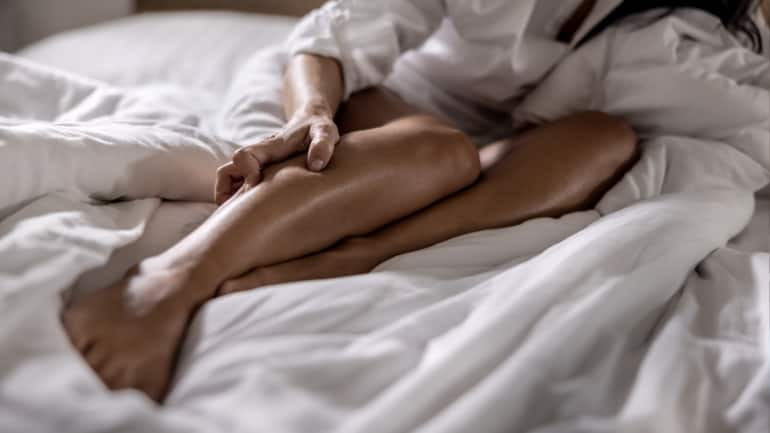
NIGHT-TIME LEG CRAMPS: CURE IT WITH MODERATE EXERCISE, ADEQUATE SLEEP AND PROPER HYDRATION
Nocturnal leg cramps, often referred to as muscle spasms or charley horses that usually in the middle of the night, are sudden, intense pains caused by the involuntary contraction of muscles in the leg. Affecting up to 60 percent of adults, these cramps primarily target the calf muscles but can also occur in the thighs. While generally harmless, they can be painful enough to disrupt sleep and may indicate underlying health issues.
Potential causes of nighttime leg cramps
While the exact cause of nocturnal leg cramps is often idiopathic, several factors can increase the likelihood of experiencing them, says Noida-based orthopedist Rahul Kanwar. According to him, many people sleep with their feet in plantar flexion, a position that shortens the calf muscles, making them more prone to cramping. Other contributing factors, according to him, include.
Sedentary lifestyle: Prolonged periods of inactivity can lead to muscle tightness.
Muscle overexertion: Excessive exercise can overwork muscles, leading to cramps.
Improper sitting positions: Sitting with legs crossed or toes pointed for extended periods can shorten calf muscles.
Prolonged standing: Those who stand for long periods at work may experience more frequent cramps.
Abnormal nerve activity: Increased abnormal nerve firing, as seen in electromyographic studies, is linked to muscle cramps.
Tendon shortening: Tendons naturally shorten over time, contributing to cramping.
Associated health conditions and medications
While leg cramps are generally not a sign of a severe medical condition, they can be associated with several health issues and medications. Conditions such as pregnancy, diabetes, neurological disorders, musculoskeletal disorders, and cardiovascular diseases can increase the risk of cramps. Medications including statins, diuretics, and certain painkillers can also trigger muscle cramps.
Home remedies and treatments
Most people do not need medical treatment for nocturnal leg cramps, as they typically resolve on their own. However, several home remedies can help alleviate the pain and prevent future occurrences:
Massage and stretching: Gently massaging the affected muscle and stretching the leg can help it relax. Flexing the foot and walking on heels can also be effective.
Heat application: Applying a hot towel, hot water bottle, or heating pad can soothe tight muscles.
Hydration and nutrition: Drinking pickle juice or ensuring adequate intake of electrolytes can help prevent cramps.
Over-the-counter painkillers: NSAIDs like ibuprofen or naproxen can relieve post-cramp soreness.
Preventive measures
To reduce the frequency of nocturnal leg cramps, consider incorporating the following habits into your routine:
Hydration: Drink plenty of fluids to maintain normal muscle function.
Stretching: Regularly stretch your calves and hamstrings, especially before bed.
Moderate exercise: Gentle activities like riding a stationary bike can loosen leg muscles.
Proper sleeping positions: Avoid sleeping with feet pointed downward. Instead, sleep on your back with a pillow under your knees.
Supportive footwear: Choose shoes that support your feet well, particularly if you have flat feet.
2024-05-23T10:41:25Z dg43tfdfdgfd